Thanks to funding from CARE International through the joint program project “MENYUMENYESHE”; with the aim of contributing to the prevention of GBV, unwanted pregnancies, early marriages and the promotion of parent-child communication and in response to the four main challenges of adolescents and young people in SRH:
- limited access to reliable and comprehensive information on youth and adolescents SRH;
- limited access to youth-friendly services;
- limited support of parents, teachers, religious leaders to access SRH information and services, norms related to young people’s sexuality, gender norms which are one of the causes of lack of gender justice and which contribute to poor communication in the family,
- inequality in decision-making, division of labor and gender-based violence and responsibilities.
IPROSARUDE has organized awareness-raising programs on various reproductive health issues for adolescents and young people. To this end, IPROSARUDE has used musical caravans, mobile cinema and competitions. The theme of the activity was
“Young people and parents, all together; avoiding early marriages, SGBV, unwanted pregnancies and miscarriages for adolescents and young people and promoting dialogue between parents and children to help adolescents and young people by informing them about the availability of SRH services adapted to the needs of young people”.
The objectives of the activity were:
- Mobilize political and administrative authorities at the national, provincial, municipal and local levels to prevent and combat unwanted pregnancies, early marriages and promote parent-child communication.
- Sensitize the community through messages, posters, banners, interactive games and radio and television spots for behavior change and the adoption of parent-child dialogue;
- Develop themes on the prevention of GBV, unwanted pregnancies, early marriage;
- Involve the RSPSJs of the youth-friendly health centers in mass awareness raising.
This activity is organized in the form of a campaign. In each commune, we spent a day of awareness raising in the different places of the commune. During awareness raising, key messages were disseminated on prevention of GBV, unwanted pregnancies, early marriage, promotion of parent-child communication.
The facilitators of these themes were experts in communication (musician, a team of IPROSARUDE facilitators and communicators, IEC people, PNSR people, etc.).
This communication campaign on sexual and reproductive health adapted to young people and adolescents also enabled us to:
- assess the level of knowledge about sexual and reproductive health adapted to young people and adolescents within the community in general and among young people in particular;
- evaluate the impact of the sensitizations made within the framework of the peer education in the target provinces of the project;
- motivate the public through the different prizes given during the competition sessions;
- Communicate publicly on the national realities of youth and adolescents SRH;
Overall, the campaign was sufficiently animated and the public took advantage of the opportunity to express the desire to resume activities in this way. Awareness-raising has been much more concerned with pupils in the primary and post-primary levels. Monitoring is carried out by the staff of the joint program to monitor the functioning of these networks and the dissemination of messages against GBV, unwanted pregnancies, early marriage and the promotion of parent-child dialogues.
The activity took place in different communes from September to December. Communes affected by the mass awareness raising are: Busoni (14th September 2017), Vumbi (15th September 2017), Buhinyuza (13th September 2017), Mwakiro (12th September 2017), Gatara( 18th September 2017), Muruta(16th September 2017), Kayanza( 17th September 2017), Kinama(10th December 2017), Bwiza(9th December 2017), Kanyosha Mairie( 11th December 2017), Kanyosha (14th December 2017), Mutimbuzi(21st December 2017), Mubimbi( 20th December 2017), Mugina (4th December 2017), Gishubi( 25th December 2017), Bugendana(24th November 2017), Mutaho( 23rd November 2017), Mpanda( 8th December 2017).
The targets were: Men heads of households; Mothers with adolescents and young people; Community leaders; Local government; Religious; Parents of children; Health managers; Education officials; Students aged 10 to 24 years old; The CDFCs

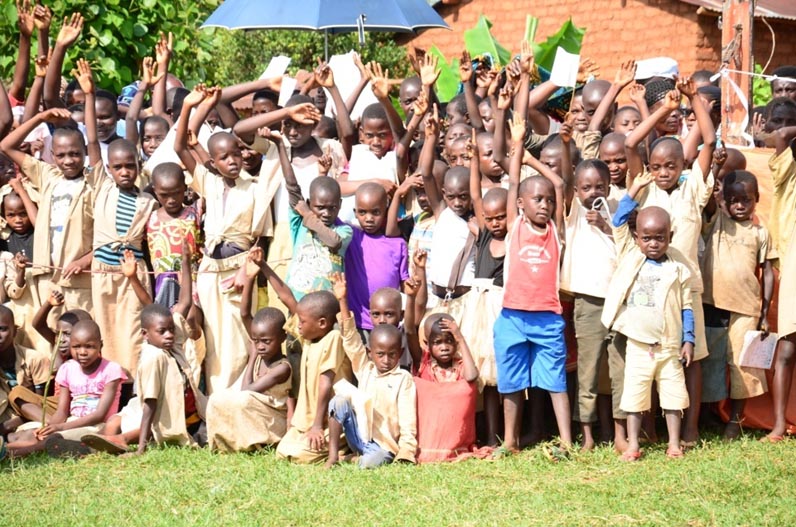
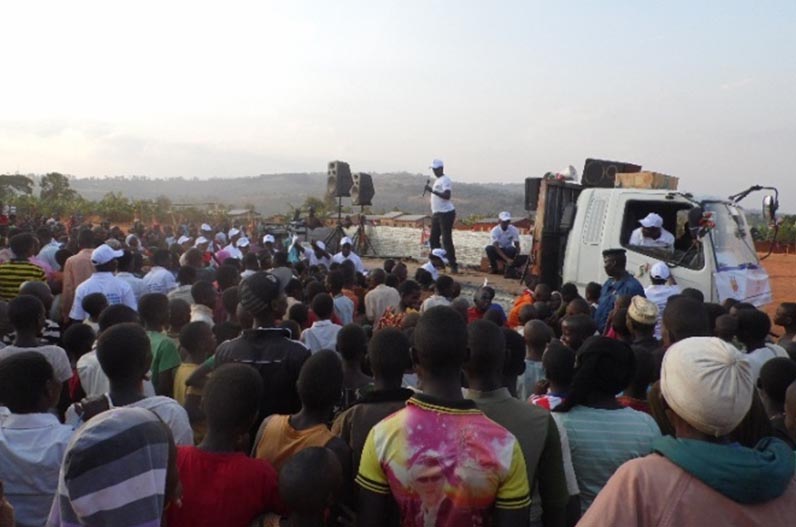
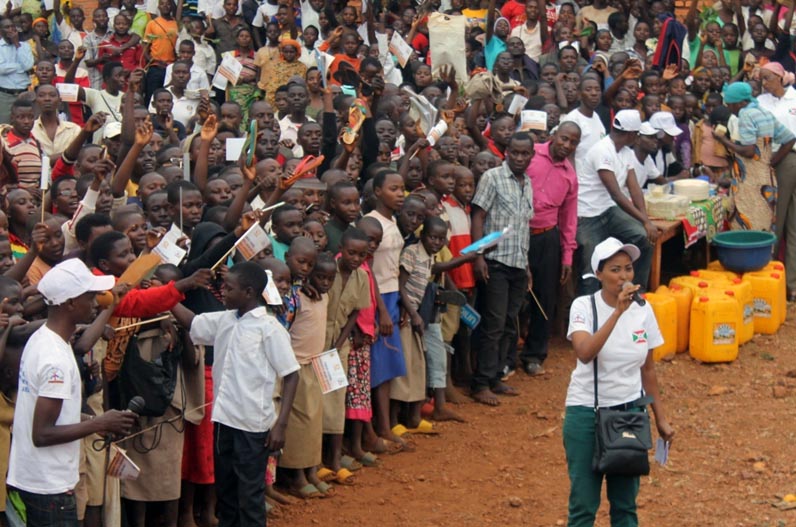
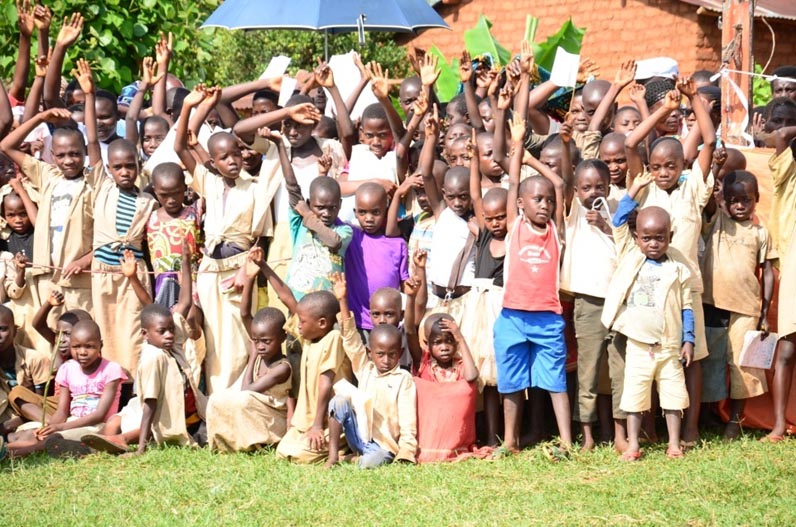
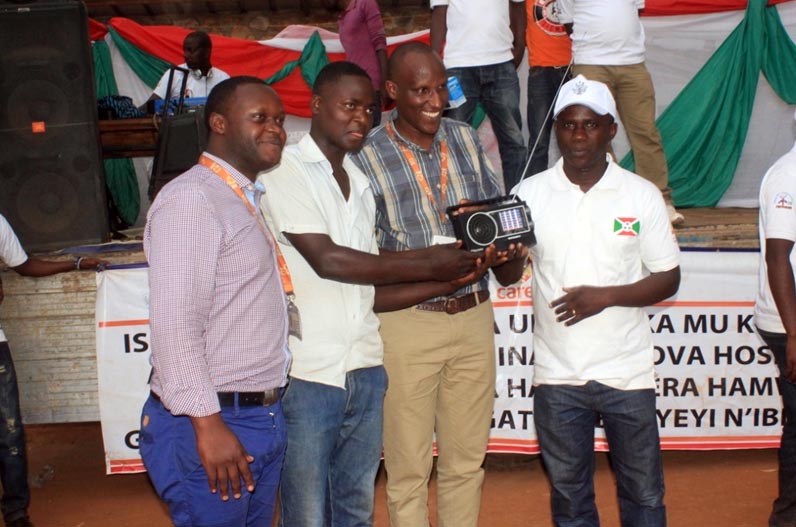
Recent Comments